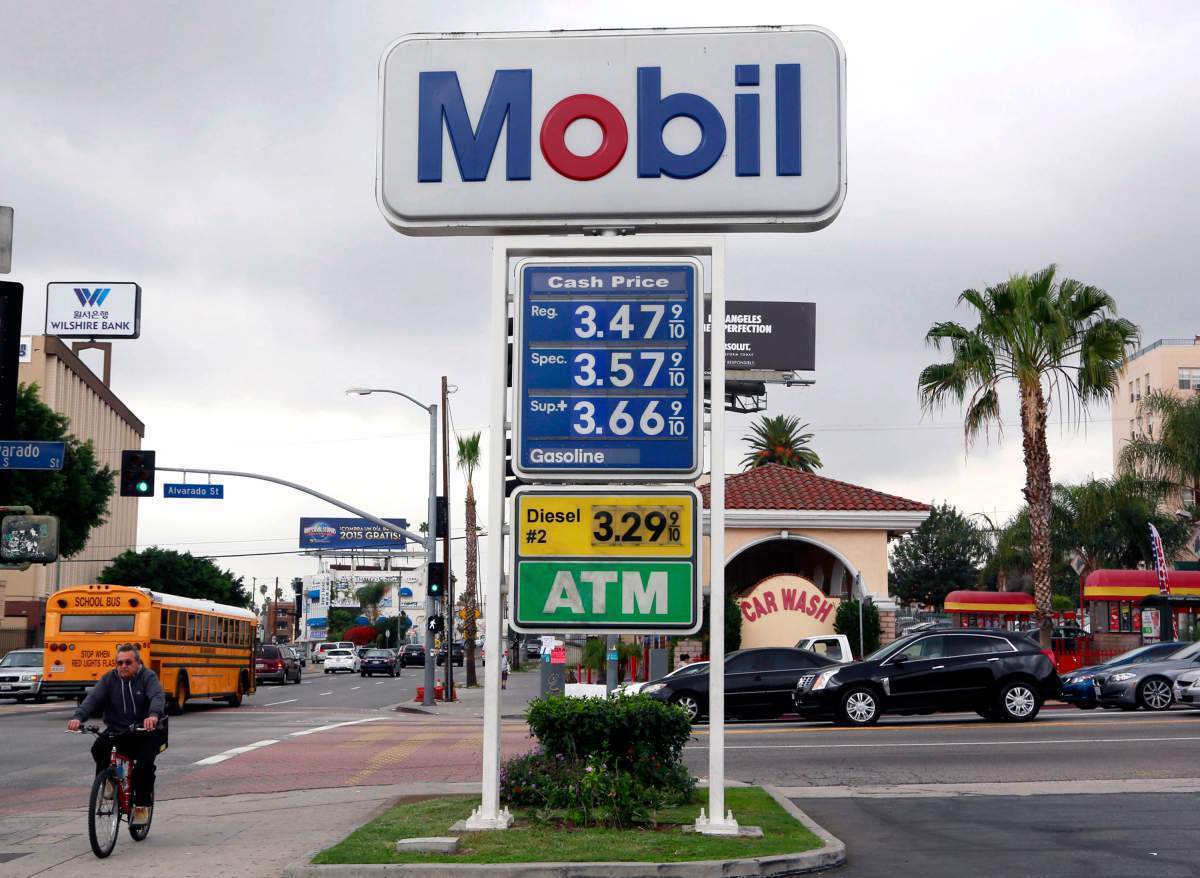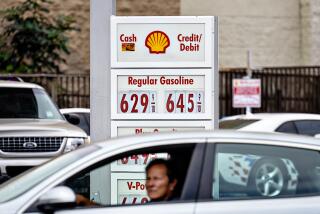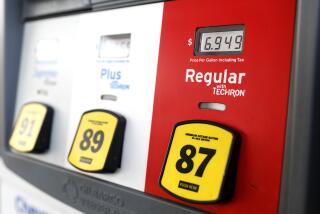Did accident or price fixing cause high gas prices? State senators ask

State senators investigating a recent surge in California pump prices at a Tuesday hearing grappled with price-fixing accusations and pressure to shift to alternative fuels.
Members of the transportation, housing and energy, utilities and communications committees questioned why retail gasoline prices rocketed past the rest of the country last month and are only gradually floating back down.
Sen. Ben Hueso (D-San Diego) chaired the hearing and returned several times to one suspicion: that the tiny pool of refiners responsible for producing California’s unique fuel blends may be colluding to keep prices artificially high.
“Do we have monopolies on fuel in California?” he asked. “We want to know if we don’t have a competitive-enough market to keep prices low.”
Gas prices soared about $1 a gallon last month in California, making the fuel more expensive than anywhere else in the country. Prices have fallen this month, but at an average of $3.25 a gallon Tuesday, gasoline in the state still costs 82 cents a gallon more than elsewhere in the U.S.
There are no pipelines connecting California to its neighbors; imports come slowly by ship or truck, panelists said. And state regulations require specific, clean-burning fuel blends.
That unique recipe – not recent adjustments to California’s cap-and-trade regulations – is the “fundamental problem” causing the price increase, said Jay McKeeman, vice president of the California Independent Oil Marketers Assn.
“Independent refiners can’t afford to make it, and it further isolates us from outside fuel producers,” he said.
Prices surged in the aftermath of a Feb. 18 explosion at the Exxon Mobil Corp. refinery in Torrance. Tesoro Corp. idled processing at its Martinez, Calif., plant earlier that month in response to a strike.
Tesoro spokeswoman Tina Barbee said Tuesday that the facility will not restart until the local United Steelworkers union ratifies a new labor agreement. The vote is scheduled for this week.
Refineries are generally under contract for 80% to 90% of the fuel they produce, said Gordon Schremp, senior fuels specialist for the California Energy Commission. To meet their obligations after a supply disruption, they tend to draw from their stockpiles, buy from traders and other refineries or turn to imports, all of which drives prices up.
“As inventories go down, the prices go up,” said Philip K. Verleger, an economist consulting for the Western States Petroleum Assn. “This is normal behavior.”
But Jaime Court, president of Santa Monica advocacy group Consumer Watchdog, said the prices are artificially inflated.
Refineries don’t try to produce more gasoline to undercut their competitors, Court said. Instead, he alleged, they work together to limit refining capacity and manipulate the market – a tactic that he attributed to intense consolidation in the industry.
Chevron and Tesoro together control 55% of the state refining market, Court testified.
California facilities keep far smaller inventories than other plants nationwide, he said. Court called for greater transparency in industry data and asked legislators to require refineries to keep more fuel at the ready.
Some senators and panelists also suggested a greater push toward alternative fuels, reasoning that a more diverse energy portfolio might balance out the volatility of petroleum pricing.
“This system is made to break because oil refineries keep it running on empty,” Court testified. “They have every incentive to create a price spike like this.”
Kathleen Foote, who heads up the antitrust division at the California attorney general’s office, agreed that the industry operates like an oligopoly in the state. But proving price fixing is difficult in a field where only a few players exist, she said.
“The more conducive a market structure is to collusion – fewer competitors, etc. – the weaker a plaintiff’s case is likely to be,” she said.
Twitter: @tiffhsulatimes







